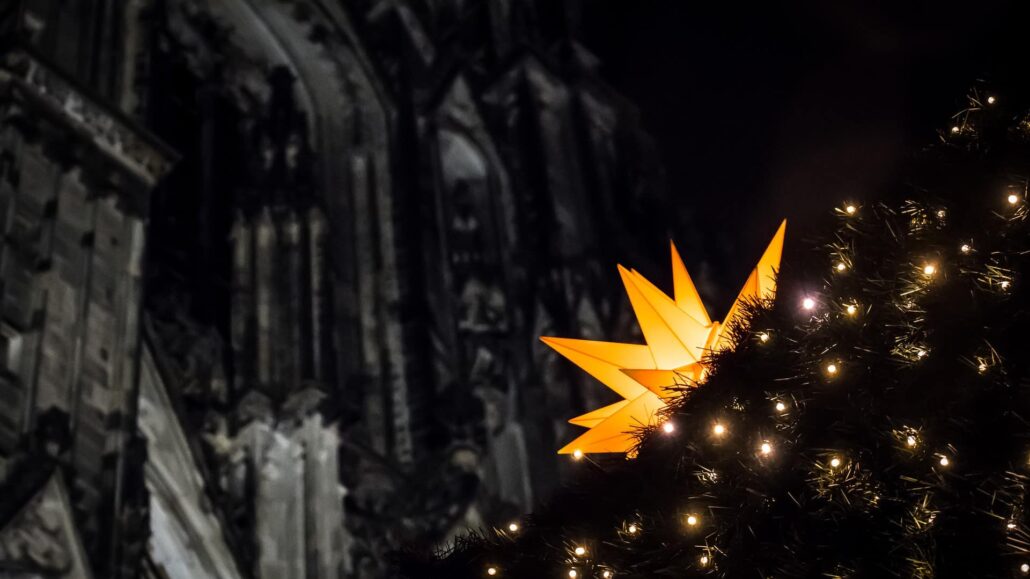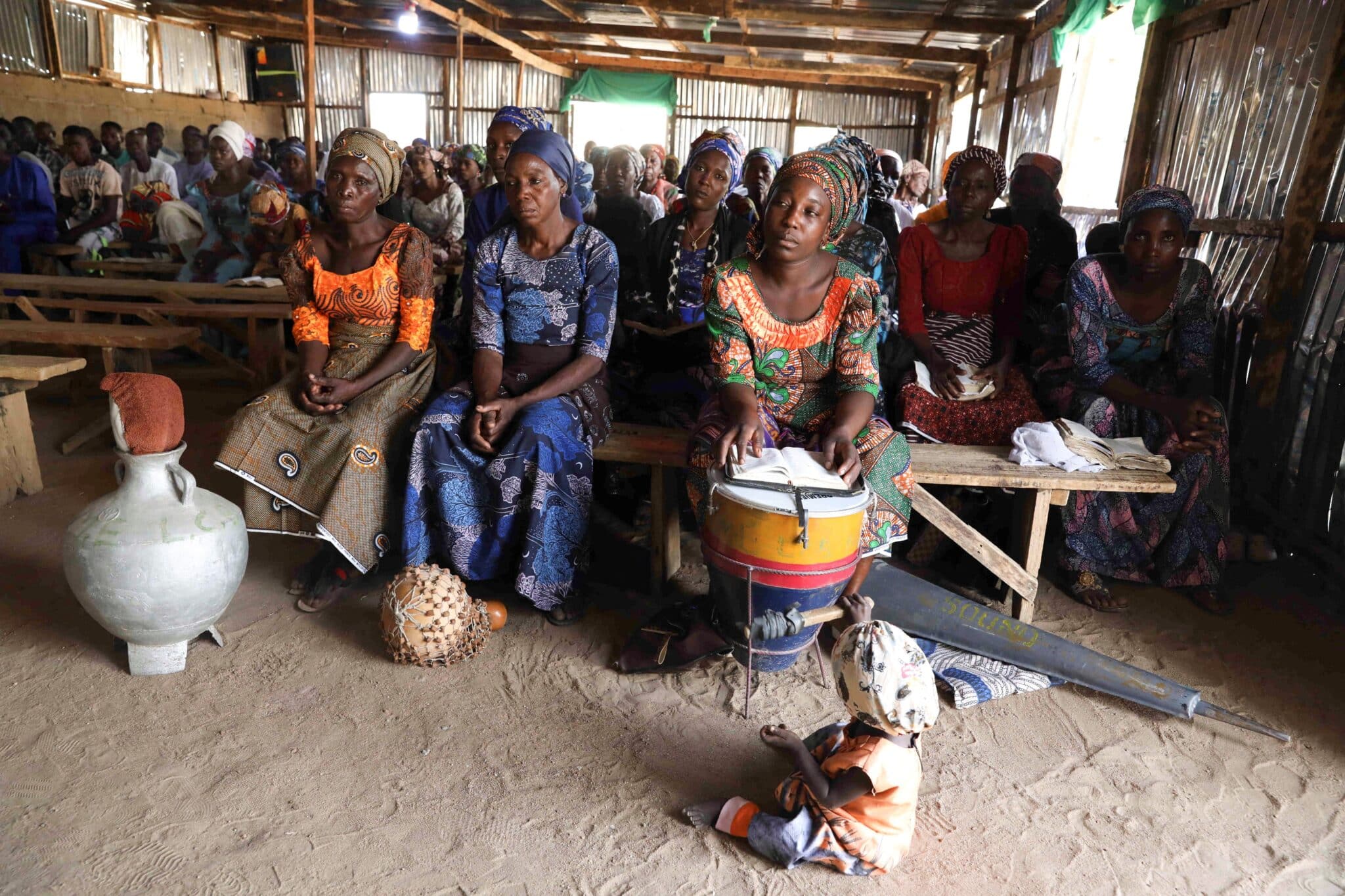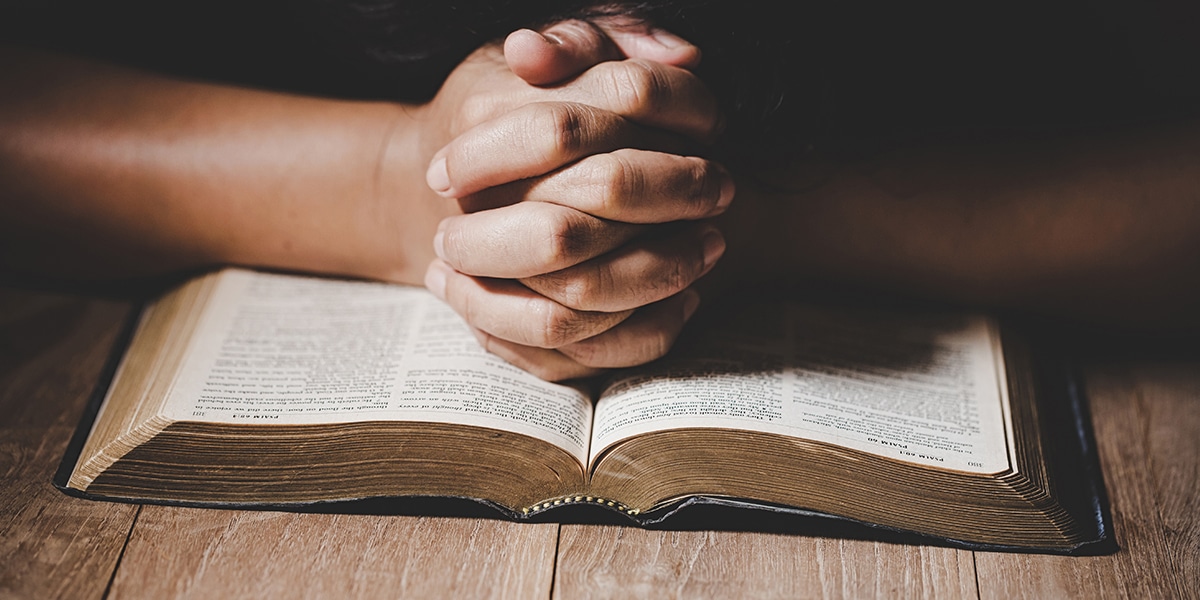At the heart of Advent are these key themes: attention, trust, and celebration.
Every time it happens, I catch my breath. Westbound flights to California pass over the Grand Canyon in silence. Beneath us stretches a marvelous sculpture of brilliant red rock, carved over centuries by the Colorado River. J.B. Priestley called it “all Beethoven’s nine symphonies in stone and magic light.” Seven million years of geological history lie exposed beneath the plane, and the pilot never mentions it. Passengers on Flight 1183 to San Diego or 1719 to Santa Ana doze, read magazines or work on their laptops.
“Hey!” I’d shout if security wouldn’t arrest me. “There are only seven natural wonders of the world, and you’re missing one of them!”
Are we equally oblivious to Advent when it rolls around again? Do we dread the season which alerts us to all we haven’t done for Christmas? The four weeks scroll through the magnificent history of human hope, and we concentrate on catalogues. Or we clip recipes, watch the sales and agonize over what to get Aunt Lucy.
“Hey!” I want to shout. “Don’t miss the wonder unfolding before our eyes!”
Some things are so important that, once a year, we must make a conscious effort to remember them. During Advent, we return to the themes of attention, trust and celebration. So frail, they tend to get swamped in daily routine; so powerful, they can sustain us through the rest of the year.
A certain amnesia is healthy for humans: The mind simply can’t hold all the details, phone numbers, passwords, jingles, events, etc., that threaten to clog and stall it. It’s as natural to erase the mental clutter as to clean out the garage.
But the hazard of this natural forgetfulness is that it works against our remembering how we’ve negotiated difficult passages before—illness, job loss, divorce, grief or moving—so we can do it again.
Advent, like the weekly Eucharist, recalls our survival stories. It asks us to take a deliberate stand that says, “Over centuries, people yearned for Christ’s coming, so I won’t take it for granted. I’ll never let his incarnation be rubbed away by over-familiarity.”
Attention in Our Deserts
The themes of Advent, like those of music, begin to build gently, then reach a climax in Christmas. First comes our transition from ordinary time. Isaiah sounds the alert: “A voice cries out: In the desert prepare the way of the LORD!” (40:3). Notice the placement of the colon. The good news comes first to the desert where it’s most needed. There, all is bleak and empty, unless you’ve got a long extension cord and a lot of water. It’s a wasteland without borders where nothing works the way it does in cozy civilization.
We’re always in one wilderness or another: In 2009, drought and depression were created by the dismal economy and widespread joblessness. Another year, it might be poor health or the death of a friend. Yet the advice remains the same: Always look for the water sources. One year we’re sustained by kind people; another, by the hope of recovery.
Furthermore, Isaiah continues, “Make straight in the wasteland a highway for our God!” The purpose of a highway is to keep moving, not to get snagged or stuck in the desert. The prophet recalls our high calling as God’s construction crew, with lots of work to do. We are not to get sucked into anxiety or worry about what we can’t control anyway. The desert plays its part in awakening us, but we don’t want to stall there.
Where are we getting bogged down, building roadblocks to God? For some people, it’s depression or a hurt they can’t release. For others, it may be a debilitating illness. Even innocent victims of crime can feel responsible, and guilt or shame drains energy. When we’re trapped in terrible circumstances, we can remember the Jews in the Nazi camps. Some went to the ovens angry and bitter; others went singing the psalms. When the problem is unavoidable, which response do we choose?
Each year Advent reminds us: Whatever it is that threatens to sap our strength, we needn’t get trapped in that vortex. We are beloved of God, centers of freedom and fidelity.
Throughout the Genesis account of creation, one refrain sounds over and over: “God saw how good it was.” The word good refers to the stars and sea, the land and plants, the rivers and animals. But as the account reaches its crescendo, the creation of human beings, it shifts to the Hebrew word tov.
This means “blessed, growing toward completeness.” Although flowers and fish have reached their natural perfection—they can’t get any better by making retreats or going to school—humans are still in process. We always have the potential to grow into what God envisioned at our conception.
Trust Solidly Rooted
As we make our wobbly way toward God’s dream for us, the only door to the future is trust. Trusting is not an act like leaping off a cliff, but faith solidly rooted in past experience. As spiritual writer Pat Livingston says, “It’s impossible to trust God in the abstract or just because we’re told God is trustworthy….We learn to trust God because of our ongoing experiences of God’s goodness.”
We’ve all had blessings slide into our foundering boats like full nets of fish, thrashing and gleaming in the sun. Advent is the time to remember that the God who has been faithful before will be faithful again. No matter what desert or wasteland we face, God enters it with us.
Much troubles us, but much has already been resolved. Look, for instance, at an old “to-do” list. It records chores crossed off, projects accomplished, calls returned, questions answered and dilemmas either solved or forgotten. All the prickly question marks eventually bend into a smooth highway for God. A good mantra or motto for Advent might be: “Everything will all work out.”
Researchers who study happiness find a close correlation between happiness and trust. If we can engage confidently with our government, church, workplace, school or neighbors, we feel supported and, in turn, able to trust.
Celebration of God With Us
John’s First Letter says God’s commands aren’t burdensome because “whoever is begotten by God conquers the world” (1 John 5:4). Our learning to trust may be the work of great happiness for which we long and wait and prepare through Advent. And what does it all lead to? Christmas celebrates the fact that God pitched his tent in us (John 1:14).
What’s waiting to be birthed in us? If we dismiss that possibility because we’re too old, tired, sick or angry, it’s the season to remember Elizabeth. She and her husband assumed they were too old to have a child, but John the Baptist was God’s surprise.
Another was God’s choice of the most unlikely vehicle, the person who seemed least suited to bring his son into the world. Mary had four strikes against her: She was female, young, unmarried and a Jew (an ethnic group oppressed by Romans, clearly the dominant culture with all the power).
But apparently God didn’t think human obstacles and categories were “flaws” in Mary. If God had approached a heavenly committee to explain the plan for salvation, God would have been unfazed by the ensuing chorus of criticism.
Scripture doesn’t record whether a goose was present at the Bethlehem stable. But symbolically, it would be appropriate. Nicholas Kristof writes in The New York Times that his family raised geese when he was a boy in Oregon. Geese mate for life, and trying to fatten up males with some delicacy was impossible; they’d always save it for their mates.
Kristof’s monthly job was to grab a goose for slaughter. As it struggled in his arms, another goose “would bravely step away from the panicked flock and walk tremulously toward me.” It would be totally terrified, but it knew something was awfully wrong, and wanted to stand with and comfort its love.
The adult Jesus would do that: Step forward to stand with us, sacrificing his very life. At our best, we do that for others: fearful, unsure, yet stepping forward for those we love. At this season, we gratefully celebrate holy boldness. When we reach Christmas itself, Father Patrick Dolan recommends, “For one day, let the child in the manger overshadow the elephant in the living room.” Of course we have “issues” when we gather with our families to celebrate the feast. Old arguments can resurface nastily; old wounds can reemerge; old habits can still grate.
But all we need do to appreciate better our friends and relatives is to notice how many have died, how many mourn. Despite his annoying repetitions, we’re blessed to have Grandpa still with us. Despite their astronomical costs, we’ll miss our children when they grow up and move away.
The Christ Child reminds us that even the small, vulnerable and insecure can make a giant contribution. As an infant, he demonstrates silently what he would say strongly as an adult: The prince of this world has no hold over me. The brute force of the Roman empire, Herod’s murderous thugs: Nothing could stop a baby and his bewildered parents from bringing forgiveness.
When God asks us to be God’s hearts, hands and home in our world, do we respond hesitantly or fearfully? If so, we need the central word of Advent: Remember. The forces that drag us down and demoralize have no power because we belong to God. Even as we struggle to believe and internalize that wondrously good news, it’s giving us life.
Advent reminds us how we were saved once—and will be saved again and again and again. Jesus wants to come into our lives, take on human skin and elbows and ears, heal whatever it is that holds us back from being fully ourselves, fully God’s.
Like bells on a frosty morning, the themes of Advent sound: attend, trust, celebrate.








